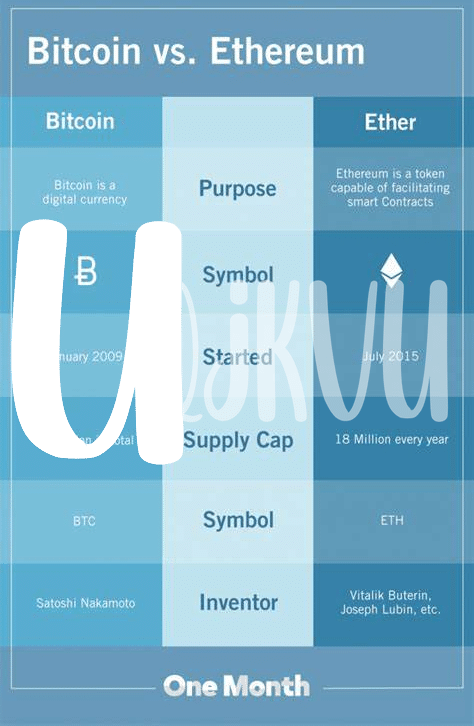Unmasking the Basics: What Is Bitcoin? 💰

Imagine a world where you can send money to anyone across the globe without needing a bank in the middle. That’s what Bitcoin, the first digital currency, brought to the table when it appeared in 2009. It’s like digital gold; you can store it, send it, or receive it, all without anyone watching over your shoulder. People love it because it gives them a sense of freedom, controlling their own money without a third party peeking into their transactions.
| 💡 Fun Fact | Bitcoin was created by a person (or group) under the pseudonym Satoshi Nakamoto. |
| 🌍 Global Impact | It has challenged how we view and use money in our digital age, inspiring the creation of thousands of other digital currencies. |
Bitcoin operates on a technology called blockchain, a digital ledger that’s spread across numerous computers. This ledger records every transaction, making sure everything is transparent and secure. Despite being open for everyone to see, the people involved in the transactions remain anonymous. You might know a transaction happened, but you won’t know who did it unless they want you to. Bitcoin’s not just changing how money moves around the world; it’s redefining what financial freedom means for so many.
Ethereum Unveiled: More Than Just Money 💼
Imagine a world where money does more than just buy things; that’s Ethereum for you. Unlike its older cousin Bitcoin, which primarily focuses on being digital gold, Ethereum steps out with a bold claim: it’s not just money, it’s a whole ecosystem. Think of Ethereum as a bustling city with endless opportunities. It’s a place where developers build incredible digital applications, from games that you can truly own pieces of to contracts that execute themselves without any middleman. What makes Ethereum stand out is its ability to support these smart contracts and decentralized applications (dApps). The magic comes from Ethereum’s platform, which acts like a giant computer, running these contracts and apps on a distributed network. This means no single person or company has control, making it a playground for innovation and privacy in the digital age. For a deeper dive into how these technologies are shaping our digital future, including their environmental footprint, check out this detailed look at https://wikicrypto.news/environmental-impact-the-truth-about-bitcoin-and-ethereum-mining.
The Anonymity Game: Bitcoin’s Stealth Mode 🕵️

Imagine a game of hide and seek where everyone knows you’re playing, but no one knows exactly where you are. That’s a bit like how Bitcoin operates when it comes to keeping your transactions private. While everyone can see the transactions happening openly on what’s called the blockchain – a sort of digital ledger ☁️📒 – figuring out who exactly is behind those transactions isn’t as straightforward. Bitcoin doesn’t shout your personal info from the rooftops; instead, it uses complex codes 🧩 that serve as disguises. So, while it’s not invisible, it’s like wearing a mask at a masquerade ball. You’re there, but not fully exposed, sipping champagne without revealing your true identity. However, it’s not a perfect cloak of invisibility. Keen-eyed detectives with the right tools 🕵️♂️🔍 can sometimes trace transactions back to real-world individuals, especially if a slip-up occurs, like connecting a transaction to a personal account. So, in this intriguing world of digital currencies, Bitcoin plays a fascinating game of hide-and-seek with privacy, balancing between shadow and light.
Ethereum’s Approach to Privacy: a Different Angle 🔍

Ethereum takes a distinctive path in the realm of digital currency, offering an intriguing twist when it comes to privacy. Unlike its older counterpart that focuses heavily on concealing transaction details to protect user identities, Ethereum goes beyond mere transaction anonymity. It dives deep into the world of smart contracts—self-executing contracts with the terms directly written into code. These smart contracts not only allow for more complex and direct interactions between parties but also introduce a new layer of privacy. By automating transactions and leveraging encryption, Ethereum creates a secure environment where operations can be performed without revealing too much information about the parties involved.
However, it’s essential to understand that while Ethereum offers enhanced capabilities, its approach to privacy is fundamentally different. The platform’s open architecture, designed to support a vast array of applications beyond simple transactions, means that not all operations on Ethereum are fully anonymous by default. Users seeking to maintain a high level of privacy may need to employ additional tools or techniques to achieve their desired anonymity. This distinct approach puts Ethereum in a unique position, bridging the gap between transparency and privacy. For those interested in exploring how privacy considerations tie into the value of digital currencies, a closer look at what determines bitcoin’s price investment strategies might offer enlightening insights. Through this lens, Ethereum’s contribution to the evolving landscape of digital currency privacy becomes even more significant, indicating a future where the balance between transparency and privacy is carefully navigated.
Analyzing Anonymity: Strengths and Weaknesses Compared 🛡️
When we dive into the world of digital currency, it’s like entering a giant maze, where every turn could lead to a treasure chest or a dead end. On one path, we have Bitcoin, which may seem like a shadowy figure wandering through the streets, with its cloak of anonymity. It keeps transactions under wraps, letting users transfer money without shouting their names from the rooftops. However, this doesn’t mean it’s a fortress of solitude; skilled detectives with the right tools can sometimes trace paths back to the person holding the wallet.
On another path, there’s Ethereum, which takes a slightly different approach. It’s like being at a masquerade ball; you might know someone is there, but pinpointing exactly who is behind the mask can be tougher. Ethereum allows for more than just currency exchanges; it’s a whole ecosystem where privacy can be designed into the applications running on its network. Yet, this added complexity can sometimes make it a tad easier for someone to slip through unnoticed. To better understand, let’s put these two side by side.
| Feature | Bitcoin | Ethereum |
|---|---|---|
| Anonymity Level | High, but traceable with effort | Varies, generally high with added complexities |
| Privacy Approach | Stealth mode for transactions | Designed into applications |
| Weakness | Traceable through advanced techniques | Complexity can sometimes leak information |
By peeking behind the curtain, it’s clear that both methods have their hideaways and alleyways. Whether you’re a fan of Bitcoin’s shadowy paths or Ethereum’s masquerade, understanding these nuances is key to navigating the future of privacy in digital currencies.
The Future of Privacy in Digital Currency 🚀

As we zoom into the digital horizon, the conversation about privacy in the realm of digital currency is becoming more vibrant and critical. Imagine a world where your online transactions are like invisible ink, visible only to you and the person you’re trading with. This is the direction in which the world of Bitcoin, Ethereum, and other cryptocurrencies is headed. Innovations are constantly being made to ensure that your financial activities online are a closed book, accessible only with your permission. But here’s a twist: as these technologies evolve, so do the techniques to breach them. It’s a never-ending game of cat and mouse, with privacy enhancements on one side and attempts to crack them on the other. Keeping your digital cash under wraps isn’t just about the technology itself; it’s also about staying one step ahead of those looking to peek into your wallet. As we sail into the future, the commitment to privacy is expected to shape not only how we use money online but also how we understand and value our digital identities. Meanwhile, for those intrigued by the nuts and bolts of cryptocurrency generation, mastering the art of mining is crucial. For an in-depth exploration, click here to unlock the secrets of how does bitcoin work investment strategies, a guide tailored to shed light on the foundational elements of securing and growing your digital treasure chest.
